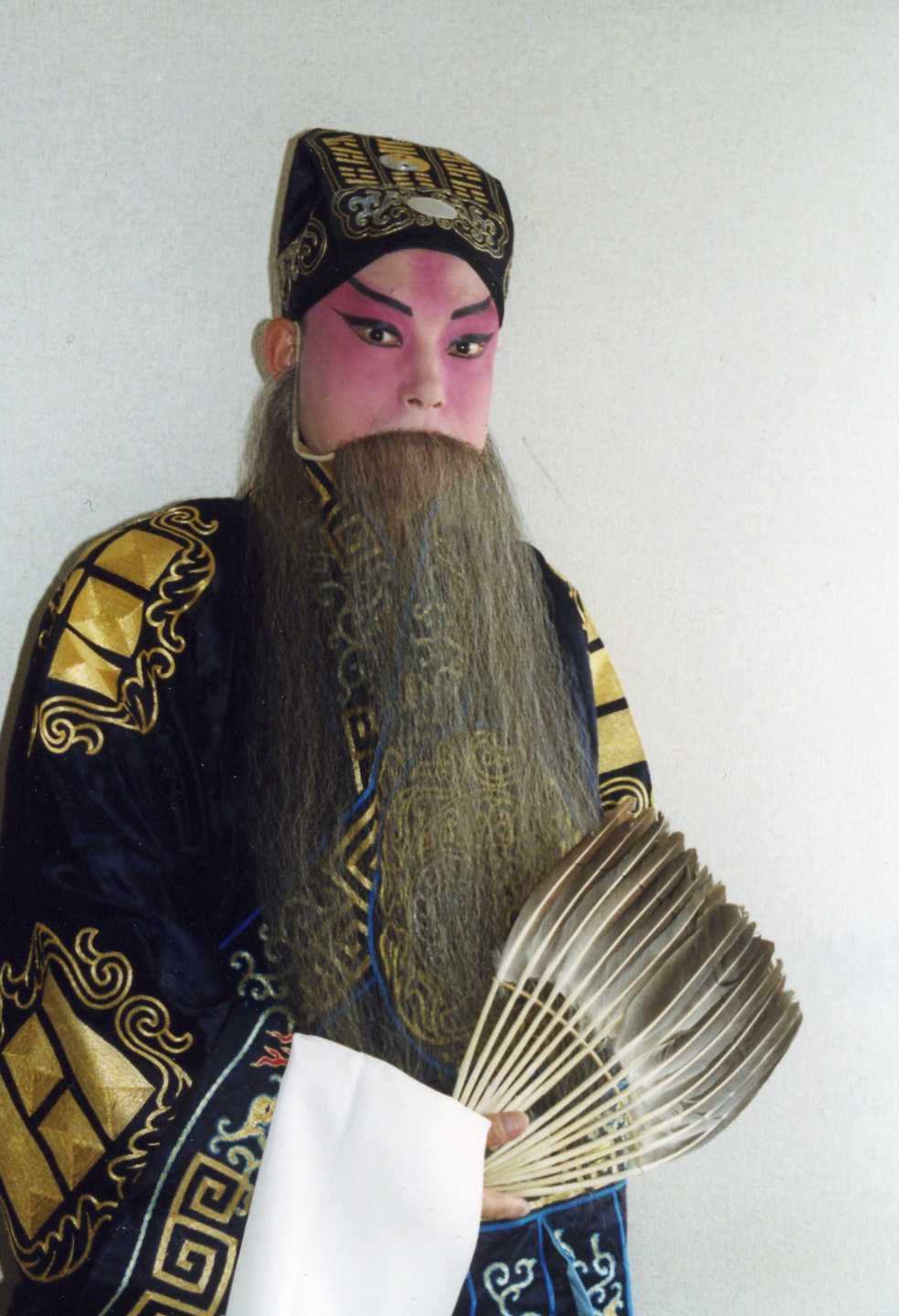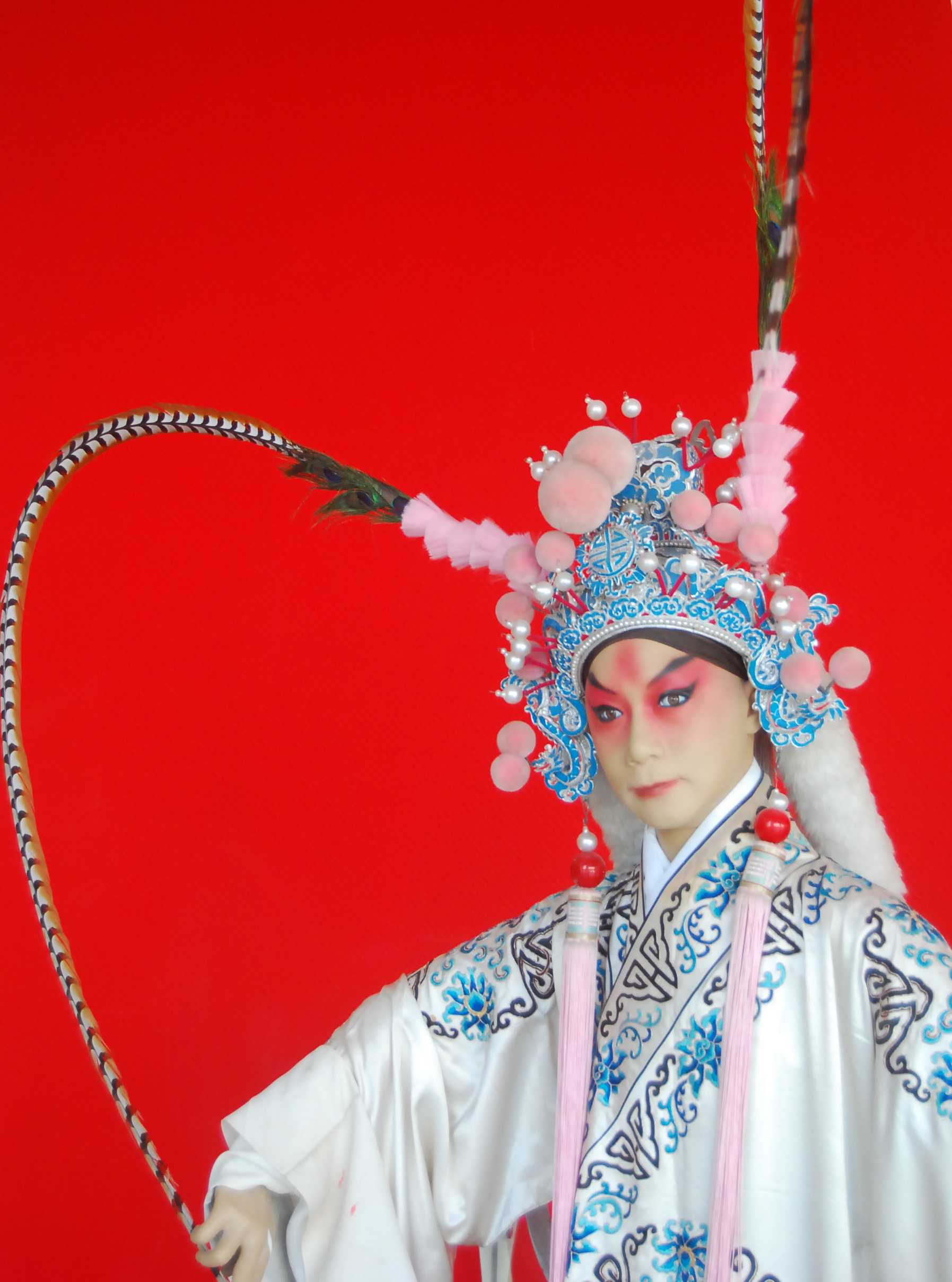Sheng (Chinese Opera) on:
[Wikipedia]
[Google]
[Amazon]
The is a role type in

 The has numerous subtypes. The two major subdivisions are the (older gentlemen) and (younger gentlemen), with another important subtype being the (martial men).
The has numerous subtypes. The two major subdivisions are the (older gentlemen) and (younger gentlemen), with another important subtype being the (martial men).
Chinese opera
Traditional Chinese opera (), or ''Xiqu'', is a form of musical theatre in China with roots going back to the early periods in China. It is an amalgamation of various art forms that existed in ancient China, and evolved gradually over more tha ...
for dignified and respectable male characters such as Confucian
Confucianism, also known as Ruism or Ru classicism, is a system of thought and behavior originating in ancient China, and is variously described as a tradition, philosophy, religion, theory of government, or way of life. Founded by Confucius ...
scholars, nobles, or heads of households. They may be portrayed by actors of either sex.
Subtypes

Peking opera
Peking opera, or Beijing opera (), is the most dominant form of Chinese opera, which combines instrumental music, vocal performance, mime, martial arts, dance and acrobatics. It arose in Beijing in the mid-Qing dynasty (1644–1912) and became ...
troupes will always have a actor. A actor may be added to play roles fitting to his age. In addition to these main , the troupe will also have a secondary .
The ( zh, c=老生, p=lǎoshēng, l=old sheng) is a dignified older role, usually distinguished by a long, thin, three-part beard. These characters have a gentle and cultivated disposition and typically wear long robes with
water sleeves
Water sleeves (Chinese: 水袖; pinyin: shuǐxiù) are long, flowing silk sleeve extensions attached to the Cuff, cuffs of Chinese opera costume, costumes in Chinese opera, widely used by both male and female characters of higher social classes. ...
, high-soled boots, and fabric headdresses.
A subcategory is ( zh, c=武老生, l=martial laosheng, p=wǔlǎoshēng), older generals who have combat skills. They wear armor and helmets instead of robes and fabric hats. Guan Yu
Guan Yu (; ), courtesy name Yunchang, was a Chinese military general serving under the warlord Liu Bei during the late Eastern Han dynasty of China. Along with Zhang Fei, he shared a brotherly relationship with Liu Bei and accompanied him on ...
, the Chinese god of sworn brotherhood, loyalty and righteousness, and Zhao Kuangyin
Emperor Taizu of Song (21 March 927 – 14 November 976), personal name Zhao Kuangyin, courtesy name Yuanlang, was the founding emperor of the Song dynasty of China. He reigned from 960 until his death in 976. Formerly a distinguished milita ...
, the first Song dynasty
The Song dynasty ( ) was an Dynasties of China, imperial dynasty of China that ruled from 960 to 1279. The dynasty was founded by Emperor Taizu of Song, who usurped the throne of the Later Zhou dynasty and went on to conquer the rest of the Fiv ...
emperor, are the only two characters in the subcategory known as ( zh, t=紅生, s=红生, p=hóngshēng), a red-faced older male.
Young, beardless male characters are known as ( zh, c=小生, p=xiǎoshēng, l=young sheng). They wear paler makeup than characters to show their youth. characters are often involved with beautiful young women by virtue of the handsome and young image they project. Depending on the character's rank in society, the costume of the may be either elaborate or simple. In Peking opera, these characters sing in a high, shrill voice with occasional breaks to represent the voice changing period of adolescence. The subcategories of are the ( zh, c=文小生, p=wénxiǎoshēng, l=civil xiaosheng) and the ( zh, c=武小生, p=wǔxiǎoshēng, l=martial xiaosheng). The roles possess martial skills and are frequently young generals. Often, their filigree helmets are appended with two long pheasant feathers known as ( zh, c=翎子).
The ( zh, c=武生, p=wǔshēng, l=martial sheng) is a martial character for roles involving combat. They are highly trained in acrobatics, and have a natural voice when singing. In Peking opera, is further divided into two subcategories based on the character's costume: *The ( zh, s=长靠武生, t=長靠武生, p=chángkào wǔshēng, l=long-armor wusheng) are high-ranking warriors who wear armor (, ), helmets, and high-soled boots. They mainly use prop weapons. *The ( zh, c=短打武生, p=duǎndǎ wǔshēng, l=short-clothes wusheng) are individual fighters or disenfranchised criminals who wear tight jackets and trousers known as ( zh, c=快衣, l=fast clothing) or ( zh, c=豹衣, l=leopard clothing) and thin-soled boots. Some of them wear a beret known as ( zh, t=羅帽, s=罗帽, l=gauze hat). They are more likely to engage in hand-to-hand combat.
Cross-gender acting
InYue opera
Yue opera (), also known as Shaoxing opera, is a popular Chinese opera genre, with only Peking opera considered to be more popular nationwide.
Originating in Shengzhou, Shaoxing, Zhejiang Province in 1906, Yue opera features actresses in male r ...
, roles have been mainly portrayed by actresses. Actresses playing men () is also common in some southern genres like Teochew opera
Teochew opera ( Chinese: 潮劇; Teochow: diê5 giah8) or Chaozhou opera, Chiuchow opera (especially in Hong Kong), is one of the many variants of Chinese opera, originating in southern China's Chaoshan region. It is popular in eastern Guangdong, ...
and Taiwanese opera
Taiwanese opera ( zh, t=, p=gēzǎixì, poj=koa-á-hì, l=Song Drama, c=, s=) commonly known as Ke-Tse opera or Hokkien opera, is a form of traditional drama originating in Taiwan. Taiwanese opera uses a stylised combination of both the literary ...
. It also appears in Ping opera
Pingju or Ping opera () is a form of Chinese opera from northern China.
History
Pingju originated in Tangshan, Hebei, near the city of Tianjin.. Among all China's regional operas, it was the most famous in the Republican period for its passiona ...
.
In Peking opera, Meng Xiaodong
Meng Xiaodong () (December 9, 1908 – May 26, 1977) was a Chinese actress of Peking opera who specialized in old '' sheng'' (male) roles.
Life
In August 1925, Meng met Mei Lanfang and they co-starred in the film ''Yóu lóng xī fèng'' (游龙 ...
was perhaps the first female superstar who specialized in roles.
References
{{Chinese opera roles Chinese opera role types Male stock characters